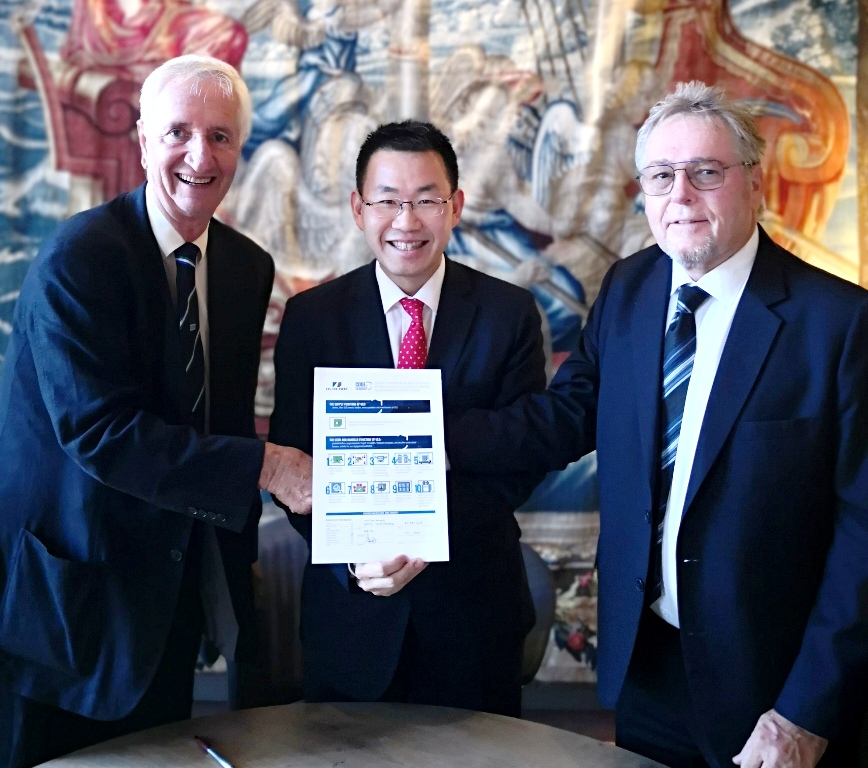Hactl signs up to new ULD Code
26 / 06 / 2019

(L to R) Bob Rogers (Vice-President, ULD CARE), Wilson Kwong (Chief Executive, Hactl) and Urs Wiesendanger (President, ULD CARE) with the Code of Conduct Agreement.
Hong Kong Air Cargo Terminals Ltd (Hactl) is the latest air cargo organisation to throw its weight behind ULD CARE’s new Unit Load Device (ULD) Code of Conduct.
The 10-point Code of Conduct is a voluntary agreement promoting best practice in the handling of ULDs, and represents a gold standard benchmark for their safe and efficient operation on the ground and in flight.
The code’s primary aim is to reduce avoidable damage and loss of ULDs throughout the supply chain. A number of airlines, handlers, forwarders and ULD suppliers have already signed up to the code.
Ground handler Hactl signed the Code of Conduct Agreement at IATA’s international ground handling conference in Madrid, and is the first Hong Kong organisation to do so.
Hactl chief executive Wilson Kwong said: “The ULD is fundamental to the modern air cargo industry; but it’s an everyday item that we all take for granted, and which many do not treat with the necessary care and respect.”
Hactl is one of the largest handlers of ULDs in the world: in 2018 it processed 1.14m units. Hactl operates within its own strict set of ULD handling procedures, and provides thorough staff training.
It uses its COSAC-Plus system to manage its customers’ ULD inventory and provide real-time status information that includes photographic images of all equipment.
Continued Kwong: “Damaged ULDs represent a colossal bill for the industry every year. In extreme cases, they can also reduce protection for cargo, and cause localised equipment shortages that disrupt schedules and impair flown-as-booked performance.
“We congratulate ULD CARE on recognising this problem, and launching a simple but effective initiative that should help to mitigate the problem through heightened awareness.”
There are some 900,000 ULDs in circulation worldwide, with a replacement value of around $1bn. Repairs cost the industry around $300m every year, while some 5% of the global ULD inventory (45,000 units, worth $50m) go missing.
Vice-president of ULD CARE, Bob Rogers, said: “Codes of conduct are not commonly found in aviation, as civil aviation regulations generally set the required standards. However, when it comes to ULDs, many ground operations take place outside the regulated framework, which is why we believe there is a need for supplementary guidance in the form of our new Code of Conduct.
“The code is derived from the IATA ULD Regulations and, when integrated with other ULD CARE solutions, it places a firm foundation under ULD operations – whether in an airport terminal or on the ramp, or off-airport at a freight forwarder’s or shipper’s premises.”














